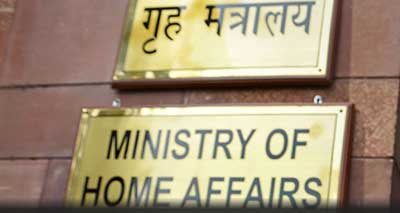Relevance: GS-2: Indian Constitution—Historical Underpinnings, Evolution, Features, Amendments, Significant Provisions and Basic Structure; Separation of Powers between various organs Dispute Redressal Mechanisms and Institutions; Parliament and State Legislatures—Structure, Functioning, Conduct of Business, Powers & Privileges and Issues Arising out of these.
Key Phrases: Preventive Detention, Article 22, National Security Act, Ministry of Home Affairs, Advisory Board, to balance the nation’s security and individual rights.
Why in News?
- Government constitutes 3-member advisory board of sitting HC judges to review National Security Act (NSA) cases.
Does NSA has constitutional backing?
- The Indian constitution is the only constitution in the world which has explicit provision for punitive detention.
- Article 22 of Indian constitution provides for both,
- Punitive detention - A 22 (1)
- Preventive detention - A22 (3)
- Article 22 (2) provides that every person who is arrested and
detained in custody shall be produced before the nearest magistrate
within a period of twenty-four hours of such arrest
- But this is only true in case of Punitive Detention
- In case of Preventive detention, the detainee can be kept
under detention without telling the explicit reason for the arrest
upto 3 months
- In order to detain beyond 3 months, one needs the permission of advisory body
Key highlights
- The Ministry of Home Affairs (MHA) has constituted an advisory
board to review the cases registered under the National Security Act (NSA)
- The act allows the detention of a person up to a year without any charge.
- The advisory board is comprising of 3 judges of the Delhi High Court
- Such an advisory board is constituted under Section 9 of the 1980 Act.
- As per official notification
- Justice Yogesh Khanna will be the chairman of the advisory board
- Justices Chandra Dhari Singh and Rajnish Bhatnagar will be other members of this high-powered body.
- The NSA empowers the Government to detain a person if it considers
the individual.
- A threat to national security or
- To prevent him or her from disrupting public order.
- Under the NSA, a person can be detained for up to 12 months without a
charge.
- The detained person can be held for 10 days without being told the charges against him or her.
Provision of appeal and allotment of lawyer?
- The detainee can appeal only before the advisory board for relief but will not be allowed a lawyer during the trial.
- 3 WEEKS - In the case of every NSA detainee, the Government concerned shall, within three weeks from the date of detention, place before the advisory board the grounds on which the order has been made and the representation, if any, made by the detainee.
Procedure of working of advisory body
- The advisory board will consider the materials placed before it.
- After hearing the detainee it will submit its report to the government within seven weeks from the date of detention of the person concerned.
- The report of the board shall specify as to whether or not there is
sufficient cause for the detention.
- In case there is sufficient cause for the detention of the person concerned, the government will confirm the detention order and continue the detention for such a period as it thinks fit.
- In cases where the board has reported that there is no sufficient cause for the detention, the Government will revoke the detention order to release the detainee
Special Case
- In case where a person has been detained with a view to prevent him/ her
from acting in any manner prejudicial to the defence of India.
- S/he can continue to be in jail without obtaining the opinion of the advisory board for a period longer than 3 months, but not exceeding 6 months
- This also applies if the person is detained to prevent from interfering with the Government’s efforts in coping with the terrorist, the security of India or the maintenance of public order or the maintenance of supplies.
Background
- NSA 1980 was enacted when the Indira Gandhi Government was in power.
- As per the Government, nearly 1,200 people across the country were detained under the NSA in 2017 and 2018.
- Madhya Pradesh detained the highest number of people under the NSA among
all the States followed by Uttar Pradesh.
- In Madhya Pradesh, 795 people were detained under the NSA in 2017
and 2018
- 466 were released by review boards and 329 were under custody.
- In Uttar Pradesh, of the 338 people detained under the NSA in 2017
and 2018,
- 150 were released by review boards and 188 were under detention.
- In Madhya Pradesh, 795 people were detained under the NSA in 2017
and 2018
- No official data is available about NSA detainees since 2019, which is a matter of concern regarding our standings on human rights parameters.
Conclusion
- Justice Katju in 2011 said: “Preventive detention is, by nature,
repugnant to democratic ideas and an anathema to the rule of the law.”
Hence the law ought to be strictly construed and should be made meticulously compliant with the procedural safeguards in order to balance the nation’s security and individual rights.
Source: The Hindu
Mains Question
Q “Preventive detention is, by nature, repugnant to democratic ideas and an anathema to the rule of the law”. Analyse the statement in light of preventive detention. Also mention the recent steps taken by the government in this direction.



















